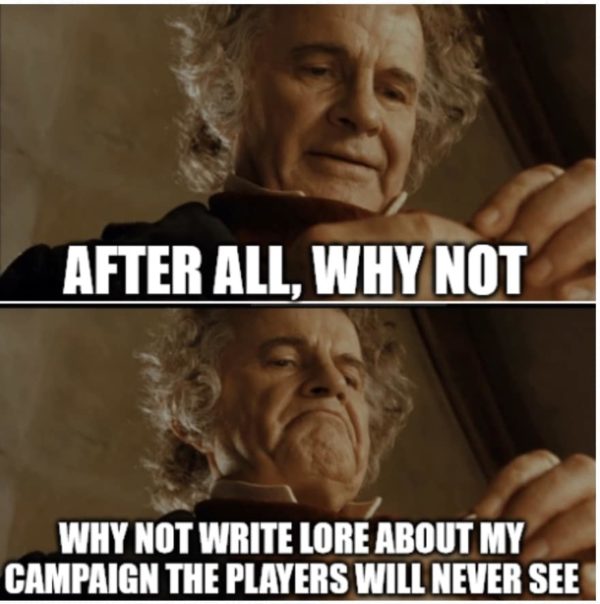Sure, they may be fun to read for pleasure. I personally find the Silmarillion pretty boring overall. But opinions on that will vary by taste. And, reading is (almost always) a solo activity. If someone is reading something and they decide they don’t like it, there’s no harm in simply not reading any further.
But… think of it as a game. If LotR was an RPG, almost none of the Silmarillion is needed for play. None of it actually matters. The “players” never actually interact with any of it.
It’s the kind of self indulgence that I think is among the worst traits a GM can have (and trust me, I include myself in that).



